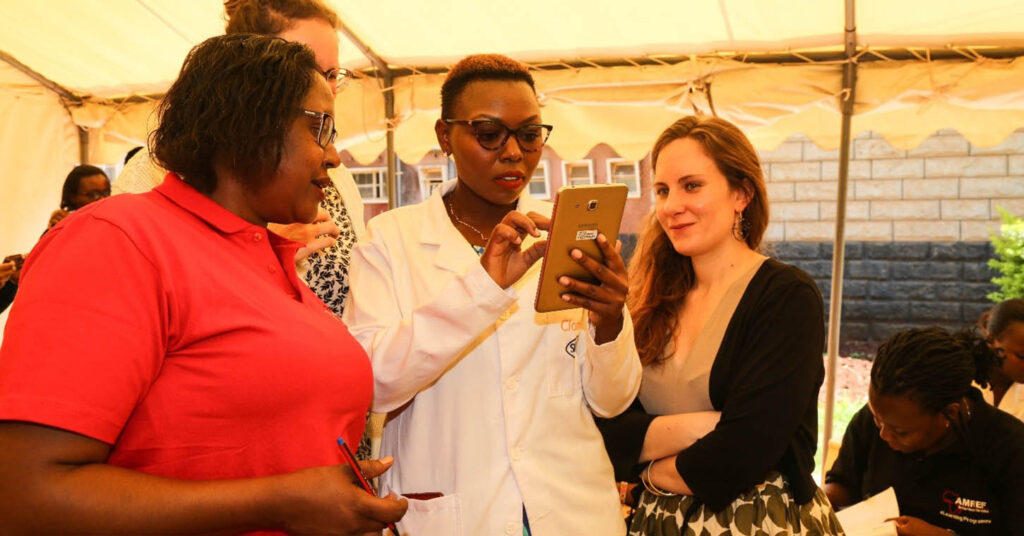Embedding technology to boost inclusive health, education and research
Categories: NEWS, INCLUSIVE HEALTH, INCLUSIVE RESEARCH
Tags: SDG5, SDG17, SDG4, SDG3
At the Elsevier Foundation, we recognize our partners’ success as we embed technology to support the UN SDGs

Nurses at Nyeri County Clinic, about 150km from Nairobi, Kenya, demonstrate how to use Amref’s Jibu app to stay updated on the latest nursing treatments in different fields, including tuberculosis. Elsevier Foundation Program Officer Domiziana Francescon (right) was there to help celebrate the launch. (Photo © Amref)
As we all strive to adapt to our very changed world in the age of COVID-19, the Elsevier Foundation’s mission to advance inclusive health and research in service of the UN Sustainable Development Goals (SDGs) remains as relevant as ever. Over the past few years, we have worked hard to embed technology across many key partnerships and have seen this focus bear fruit as the world has gone into preventative pandemic measures.
Girls Inc NYC, a new partner in 2019, serves a vulnerable urban population that has been particularly hard hit by the breakdown in social and financial safety nets. Within a week of New York City schools closing, they were able to deliver all of their programs, including PreG3: The Elsevier Data Analytics Preparatory Program, virtually and are working as quickly as possible to equip their girls with the necessary tablets, internet access and technical skills.
Embedding technology
Our efforts to embed technology across many of our partnerships have been increasingly timely. In March, our longstanding partner Amref, which provides health education in Africa, officially launched Jibu (Swahili for “answer”), a continuing education app we have supported to offer efficient and cost-effective training for nurses in East Africa. Now, 3,000 health workers across all 47 Kenyan counties are using the COVID-19 course.
We also supported the rollout of a Research4Life training MOOC in 2019, which serves as an integrated complement to our face-to-face training. The MOOC ensures that distance learning on how to use critical Research4Life resources can proceed despite the physical limitations users and trainers are dealing with today.
Read the full article on Elsevier Connect: “Embedding technology to boost inclusive health, education and research“, YS Chi and Ylann Schemm, 25 May 2020.

















